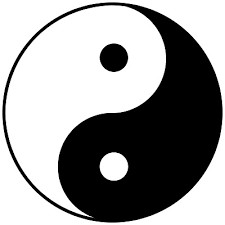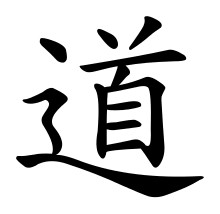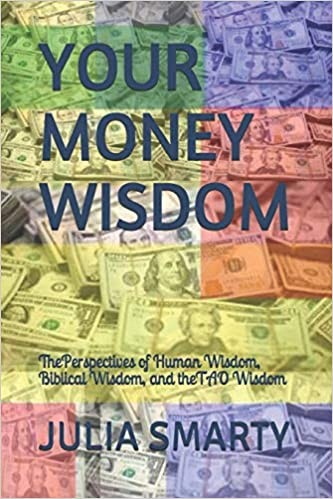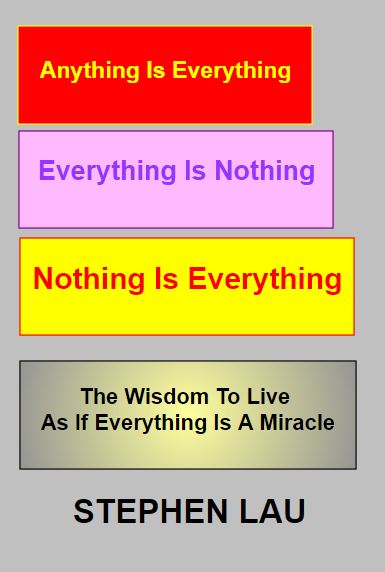



The TAO in Everyday Life


STEPHEN LAU




The TAO is in every aspect of life: growing up; receiving education; seeking careers; getting married; raising children; connecting with others; staying healthy; growing old; and facing life challenges.

Money Wisdom
All About . . . .
We are living in a world wanting wisdom. The majority of people experience the lack and not the abundance, while only a small number of people feel both the affluence and the wealth. Surviving and navigating in this world of money disparity require profound wisdom—the perspectives of human wisdom, Biblical wisdom, and the TAO wisdom from ancient China.
This book is about asking many questions regarding money wisdom, given that money always plays a pivotal role in this world of both lack and abundance. Charles Proteus Steinmetz, a German-born American mathematician and electrical engineer, once said: “There are no foolish questions and no one becomes a fool until he has stopped asking questions.” So, continue asking many self-intuitive questions to enhance your money wisdom. The spirit of wisdom demands you to ask as many questions as possible on how you view the world today based on your own past and present life experiences.
Your money wisdom is your need to think about money more. Don’t bury your head on the sand! Be wise on all your money matters!Life is short, so make the best and the most out of it now! Live your life as if everything is a miracle. To do just that, you must know who you are and what life is all about. Most importantly, you must have the wisdom to live your life to the fullest, whether you feel abundance or lack.
The Book Outline . . . .
The book looks at money values from perspectives of human wisdom, spiritual wisdom, and TAO wisdom from ancient China. The perspectives are illustrated with real life examples for your perception, intuition, and self-enlightenment.
The above is what this book is all about. Click here to get your copy from AMAZON.
All About . . . .
We are living in a world wanting wisdom. The majority of people experience the lack and not the abundance, while only a small number of people feel both the affluence and the wealth. Surviving and navigating in this world of money disparity require profound wisdom—the perspectives of human wisdom, Biblical wisdom, and the TAO wisdom from ancient China.
This book is about asking many questions regarding money wisdom, given that money always plays a pivotal role in this world of both lack and abundance. Charles Proteus Steinmetz, a German-born American mathematician and electrical engineer, once said: “There are no foolish questions and no one becomes a fool until he has stopped asking questions.” So, continue asking many self-intuitive questions to enhance your money wisdom. The spirit of wisdom demands you to ask as many questions as possible on how you view the world today based on your own past and present life experiences.
Your money wisdom is your need to think about money more. Don’t bury your head on the sand! Be wise on all your money matters!Life is short, so make the best and the most out of it now! Live your life as if everything is a miracle. To do just that, you must know who you are and what life is all about. Most importantly, you must have the wisdom to live your life to the fullest, whether you feel abundance or lack.
The Book Outline . . . .
The book looks at money values from perspectives of human wisdom, spiritual wisdom, and TAO wisdom from ancient China. The perspectives are illustrated with real life examples for your perception, intuition, and self-enlightenment.
The above is what this book is all about. Click here to get your copy from AMAZON.

An excerpt from the book . . .
What is money?
Money is not just about coins and dollars; it is about anything and everything in your life that you may have knowingly or unknowingly attached a price tag in your mind.
Money is emotional. So, you must have your money wisdom to navigate that reality by creating your own money beliefs and money habits that may affect your emotions when you feel the abundance or the lack of money.
So, what are your money beliefs? Do you believe that money can buy you many things, if not everything? Do you believe in the power of money?
What are some of your money habits, such as the ways you earn and make your money, as well as the ways you save and spend your money earned? Do they give you security or insecurity?
Does money matter?
Of course, money matters in life. You cannot do without your money, which always matters to you. That is the reality.
Your money can do many things, but not everything, and that is also the reality of your money wisdom.
Your money may provide you with access to resources which can be used to help you meet some but not all of your everyday “needs” and “wants.”
With more money, you can live rich; with less money, you can still live richly.
But how to live richly, if you cannot live rich?
Thrift is the answer. Thrift is an alternative lifestyle to consumerism, materialism, and over-consumption in this material world you are living in.
Thrift may help you work less, and not more. Many people are not paying with their money; instead, they are paying with their time from their lives. Are you one of them? Are you doing two or more jobs just to earn that money to spend more?
Thrift may promote your positive consumption values. Are some or most of your purchases aimed at your instant gratification, or just enhancing your self-esteem, making you feel rich, such as wearing a designer dress?
Thrift may encourage your savings. It may give you more space to save, thereby instrumental in protecting you from negative income shocks, such as an unexpected unemployment.
The bottom line
If money really matters to you, capitalize on the skills you already have, enhance and improve them, and look for better and richer employment. In addition, there are likely many other skills you may already possess that cannot be or have not been fully maximized or utilized wherever you are working. Then, harness those skills and capitalize on them through doing some freelance work on the side to maximize your current income.
If, on the other hand, you do not have the basic skills, and you do not want to learn and acquire them, and yet you always crave money and wealth, then your cravings are only your money fantasies.
What are money fantasies?
Only your money wisdom can separate your money fantasies from the money realities.
There was the story of a beautiful and sophisticated woman in her mid-twenties who wrote to an investment counseling company looking for a list of eligible bachelors with earnings of at least $600,000 a year. That woman had money fantasies in her mind.
According to experts, using marriage as an investment is a money fantasy, and no more than a bad investment bargain-just like investing into a shrinking currency. Imagine, the beauty of that woman will shrink over the years, while the $600,000 may grow over the long haul.
So, marrying into money, buying the lottery, and winning at the casino are all money fantasies.
What is money misery?
Money misery is a reality for many, who always feel dissatisfied, frustrated, insecure, and insolvent. This mental condition suffered by many is often a result of their constant exposure to media news of the rich and the famous, as well as their own perceptions of “possessions equal satisfaction.” It is your own mental interpretation of what you see versus who you really are.
You have money misery if you have a job with a modest income but still living from paycheck to paycheck. If you are struggling with money misery, you need your money wisdom to change your belief system, to stop comparing yourself with others around you, as well as to identify all the whys of your emotional feelings about and around your money misery.
Why so many are broke?
According to The Wall Street Journal, many consumers (nearly 70 percent) are living from paycheck to paycheck. More than 50 percent consumers worry a lot about money, such as retirement. Once they lose their jobs or encounter any financial crisis, they become broke.
Even wealthy celebrities, such as Mike Tyson and Michael Jackson, go broke.
Mike Tyson, a boxing champion with several heavyweight titles, earning over $300 million dollars during his successful boxing career, ended up in bankruptcy in 2003.
Michael Jackson, recording artist, dancer, singer and songwriter, earning more than $500 million dollars, was heavily in debt when he died in 2009.
Of course, you might say: “If I had those millions of dollars, I wouldn’t become broke?” But if you cannot change your current spending habits, it would be a lot more difficult to change them when you have become a wealthy celebrity, such as Mike Tyson or Michael Jackson.
So, going broke is no respecter of persons, whether you are rich or poor.
The bottom line: Everyone needs to have the money wisdom to know how to earn, invest, and spend money to avoid going broke.
Can money cause irrational behavior?
Money can often create irrational behavior in rational people, resulting in harmful and even painful consequences in their lives.
Some examples of irrational behavior in rational people with respect to money are as follows:
·Money matters so much to some people that they feel so contented and will not even ask for more, even though they may rightly deserve it.
·Money matters so much to some people that they simply refuse ever to go into debt, blindly believing in the virtue of being debt-free no matter what.
·Money matters so much to some people that they would allow their greed to get better of their sound financial judgment, resulting in bad investments.
·Money matters so much to some people that they do not let on about the family finances, such as couples concealing bank accounts or credit card payments from each other.
Does any of the above apply to you? If yes, then money may also make you irrational?
What are the obstacles to understanding the money wisdom?
You may not attain your money wisdom if you are confronted with the following obstacles:
·You spend more than you earn. Do you have several unpaid credit cards?
·You buy things you do not need with the money you do not have. Take a look at your closet, your basement or your garage. Are they all full of your stuff?
·You think you need more money. You save and save. Money has become nothing but only security to you. Do you always worry a lot about your money insecurity?
·You want quick returns and big payoffs for your money. Do you often go to the casino or buy the lottery?
·You go with the crowd when it comes to investment and spending. Do you often go shopping with a group of your dear friends?
To overcome the above obstacles, you must simply do exactly the opposite.
Once you can free yourself from the delusional and irrational money beliefs and habits, you will then begin to perceive how money really matters in your life, such that you will learn how to sell yourself, how to invest wisely, and how to make more money. You will be richer for life-in every way. Once you have attained your money wisdom, you will then look at money with new perspectives and you will know how to make, save, and spend your money.
YOUR MONEY WISDOM
What is money?
Money is not just about coins and dollars; it is about anything and everything in your life that you may have knowingly or unknowingly attached a price tag in your mind.
Money is emotional. So, you must have your money wisdom to navigate that reality by creating your own money beliefs and money habits that may affect your emotions when you feel the abundance or the lack of money.
So, what are your money beliefs? Do you believe that money can buy you many things, if not everything? Do you believe in the power of money?
What are some of your money habits, such as the ways you earn and make your money, as well as the ways you save and spend your money earned? Do they give you security or insecurity?
Does money matter?
Of course, money matters in life. You cannot do without your money, which always matters to you. That is the reality.
Your money can do many things, but not everything, and that is also the reality of your money wisdom.
Your money may provide you with access to resources which can be used to help you meet some but not all of your everyday “needs” and “wants.”
With more money, you can live rich; with less money, you can still live richly.
But how to live richly, if you cannot live rich?
Thrift is the answer. Thrift is an alternative lifestyle to consumerism, materialism, and over-consumption in this material world you are living in.
Thrift may help you work less, and not more. Many people are not paying with their money; instead, they are paying with their time from their lives. Are you one of them? Are you doing two or more jobs just to earn that money to spend more?
Thrift may promote your positive consumption values. Are some or most of your purchases aimed at your instant gratification, or just enhancing your self-esteem, making you feel rich, such as wearing a designer dress?
Thrift may encourage your savings. It may give you more space to save, thereby instrumental in protecting you from negative income shocks, such as an unexpected unemployment.
The bottom line
If money really matters to you, capitalize on the skills you already have, enhance and improve them, and look for better and richer employment. In addition, there are likely many other skills you may already possess that cannot be or have not been fully maximized or utilized wherever you are working. Then, harness those skills and capitalize on them through doing some freelance work on the side to maximize your current income.
If, on the other hand, you do not have the basic skills, and you do not want to learn and acquire them, and yet you always crave money and wealth, then your cravings are only your money fantasies.
What are money fantasies?
Only your money wisdom can separate your money fantasies from the money realities.
There was the story of a beautiful and sophisticated woman in her mid-twenties who wrote to an investment counseling company looking for a list of eligible bachelors with earnings of at least $600,000 a year. That woman had money fantasies in her mind.
According to experts, using marriage as an investment is a money fantasy, and no more than a bad investment bargain-just like investing into a shrinking currency. Imagine, the beauty of that woman will shrink over the years, while the $600,000 may grow over the long haul.
So, marrying into money, buying the lottery, and winning at the casino are all money fantasies.
What is money misery?
Money misery is a reality for many, who always feel dissatisfied, frustrated, insecure, and insolvent. This mental condition suffered by many is often a result of their constant exposure to media news of the rich and the famous, as well as their own perceptions of “possessions equal satisfaction.” It is your own mental interpretation of what you see versus who you really are.
You have money misery if you have a job with a modest income but still living from paycheck to paycheck. If you are struggling with money misery, you need your money wisdom to change your belief system, to stop comparing yourself with others around you, as well as to identify all the whys of your emotional feelings about and around your money misery.
Why so many are broke?
According to The Wall Street Journal, many consumers (nearly 70 percent) are living from paycheck to paycheck. More than 50 percent consumers worry a lot about money, such as retirement. Once they lose their jobs or encounter any financial crisis, they become broke.
Even wealthy celebrities, such as Mike Tyson and Michael Jackson, go broke.
Mike Tyson, a boxing champion with several heavyweight titles, earning over $300 million dollars during his successful boxing career, ended up in bankruptcy in 2003.
Michael Jackson, recording artist, dancer, singer and songwriter, earning more than $500 million dollars, was heavily in debt when he died in 2009.
Of course, you might say: “If I had those millions of dollars, I wouldn’t become broke?” But if you cannot change your current spending habits, it would be a lot more difficult to change them when you have become a wealthy celebrity, such as Mike Tyson or Michael Jackson.
So, going broke is no respecter of persons, whether you are rich or poor.
The bottom line: Everyone needs to have the money wisdom to know how to earn, invest, and spend money to avoid going broke.
Can money cause irrational behavior?
Money can often create irrational behavior in rational people, resulting in harmful and even painful consequences in their lives.
Some examples of irrational behavior in rational people with respect to money are as follows:
·Money matters so much to some people that they feel so contented and will not even ask for more, even though they may rightly deserve it.
·Money matters so much to some people that they simply refuse ever to go into debt, blindly believing in the virtue of being debt-free no matter what.
·Money matters so much to some people that they would allow their greed to get better of their sound financial judgment, resulting in bad investments.
·Money matters so much to some people that they do not let on about the family finances, such as couples concealing bank accounts or credit card payments from each other.
Does any of the above apply to you? If yes, then money may also make you irrational?
What are the obstacles to understanding the money wisdom?
You may not attain your money wisdom if you are confronted with the following obstacles:
·You spend more than you earn. Do you have several unpaid credit cards?
·You buy things you do not need with the money you do not have. Take a look at your closet, your basement or your garage. Are they all full of your stuff?
·You think you need more money. You save and save. Money has become nothing but only security to you. Do you always worry a lot about your money insecurity?
·You want quick returns and big payoffs for your money. Do you often go to the casino or buy the lottery?
·You go with the crowd when it comes to investment and spending. Do you often go shopping with a group of your dear friends?
To overcome the above obstacles, you must simply do exactly the opposite.
Once you can free yourself from the delusional and irrational money beliefs and habits, you will then begin to perceive how money really matters in your life, such that you will learn how to sell yourself, how to invest wisely, and how to make more money. You will be richer for life-in every way. Once you have attained your money wisdom, you will then look at money with new perspectives and you will know how to make, save, and spend your money.
YOUR MONEY WISDOM



